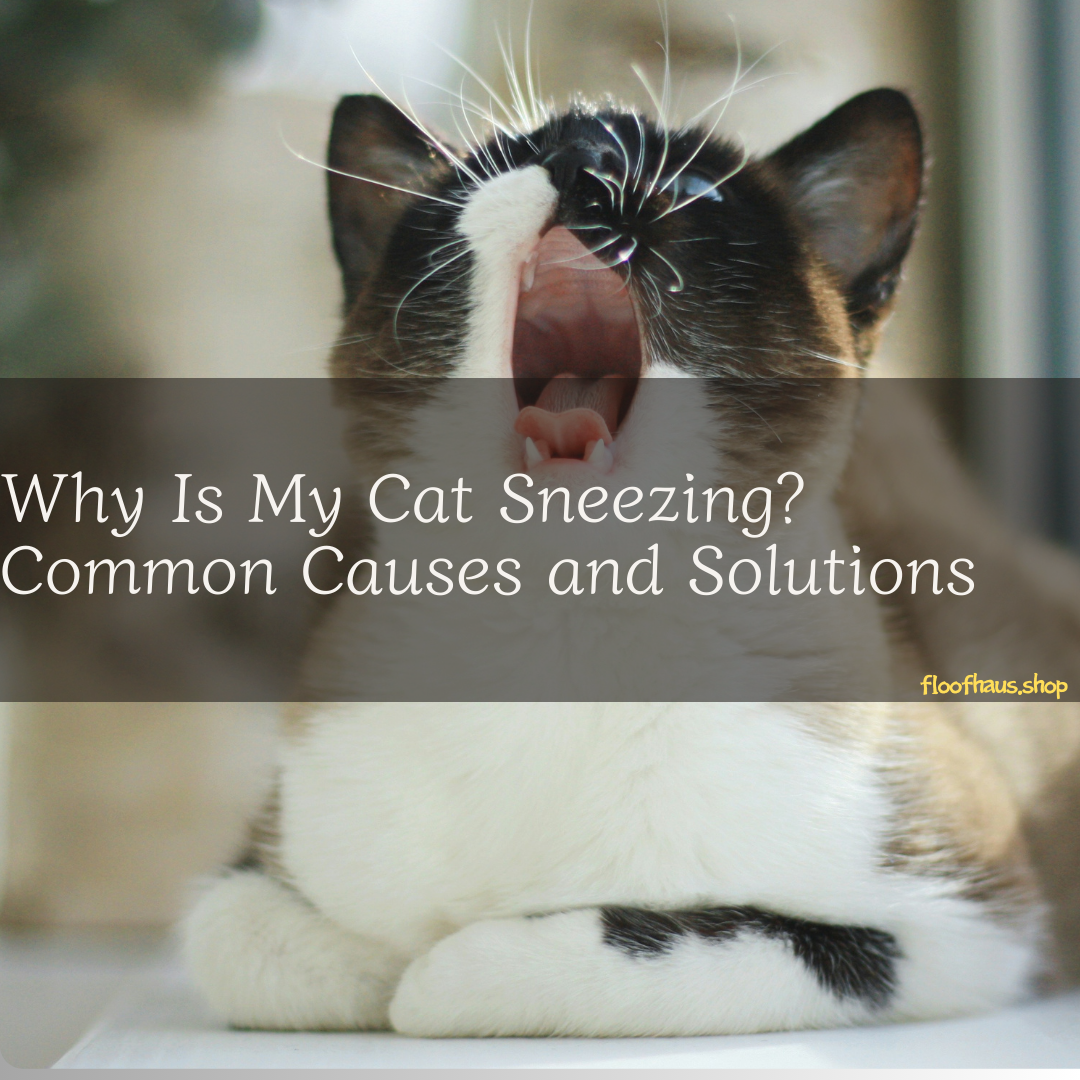
Why Is My Cat Sneezing? Common Causes and Solutions
Share

Cat sneezing is something most pet owners encounter at some point. A sudden “achoo” now and then is usually nothing to worry about, but frequent or intense sneezing can signal health issues. Understanding why your cat is sneezing can help you decide whether it’s a minor irritation or a sign to call the vet.
Why Cats Sneeze
Just like humans, cats sneeze to clear their nasal passages. It’s a natural reflex triggered by irritants such as dust, pollen, or even a tickle in the nose. However, persistent sneezing can point to other underlying causes, including infections or allergies.
Common triggers include:
- Respiratory infections – Feline herpesvirus or calicivirus are common culprits, especially in multi-cat households.
- Allergies – Dust, pollen, or even scented litter can irritate a cat’s nose.
- Irritants – Smoke, perfumes, or strong cleaning agents may lead to sneezing fits.
- Foreign objects – Tiny particles or fur lodged in the nasal passages can cause irritation.
- Dental problems – Infections in the teeth or gums can sometimes affect the sinuses.
When to See a Vet
Occasional sneezing is harmless, but you should pay attention if your cat:
- Sneezes several times in a row multiple times a day
- Has nasal discharge that’s yellow or green
- Shows signs of lethargy, fever, or loss of appetite
- Has watery eyes, coughing, or labored breathing
If these symptoms appear, it’s best to consult a veterinarian. Sneezing combined with other signs can indicate upper respiratory infections, which are common in cats and often contagious to other cats in the household.
Common Causes of Frequent Sneezing in Cats
-
Upper Respiratory Infections (URIs)
URIs are a leading cause of frequent sneezing in cats. These can be caused by viruses like feline herpesvirus or calicivirus, and sometimes by bacteria such as Bordetella. -
Allergies
Cats can develop allergies to environmental triggers like pollen, dust mites, or certain cleaning products. Allergic sneezing is often seasonal and may be accompanied by itching or watery eyes. -
Irritants
Perfumes, air fresheners, and cigarette smoke can irritate your cat’s nasal passages, leading to sneezing. Switching to unscented products can help. -
Dental Problems
Infections in the teeth, especially upper molars, can spread to the nasal cavity and cause sneezing. Regular dental care is important for prevention. -
Foreign Objects
Grass, seeds, or tiny particles can get lodged in a cat’s nose, triggering repeated sneezing until the irritant is expelled.
How to Help a Sneezing Cat
- Keep the environment clean: Vacuum regularly and reduce dust buildup.
- Use unscented products: Avoid air fresheners, scented candles, and strong-smelling cleaners.
- Maintain good ventilation: Fresh air can help clear irritants from your home.
- Hydration: Make sure your cat has plenty of fresh water to help thin mucus and ease breathing.
- Vet check-ups: If sneezing persists, seek professional advice to rule out infections or other conditions.
Prevention Tips
Reducing environmental triggers is key to keeping your cat comfortable. Regularly wash bedding, vacuum floors, and brush your cat to minimize dust and dander. If your cat spends time outdoors, consider limiting exposure during high pollen seasons.
To minimize cat sneezing in the future:
- Stay up to date on vaccinations, especially for cats prone to URIs.
- Keep stress levels low, as stress can weaken immunity.
- Ensure proper dental hygiene with regular vet exams and cleanings.
- Maintain a dust-free, smoke-free environment.
How floofhaus Supports Cat Health
At floofhaus.shop, we provide products that make it easier to care for your cat’s respiratory health — from air purifiers and unscented litter to comfortable bedding and grooming tools. Creating a healthy, stress-free home environment can go a long way in reducing sneezing episodes.
Final Thoughts
Occasional sneezes are usually nothing to worry about, but persistent symptoms shouldn’t be ignored. By understanding the possible causes, taking preventative steps, and seeking veterinary advice when needed, you can ensure your cat stays healthy and comfortable year-round.
